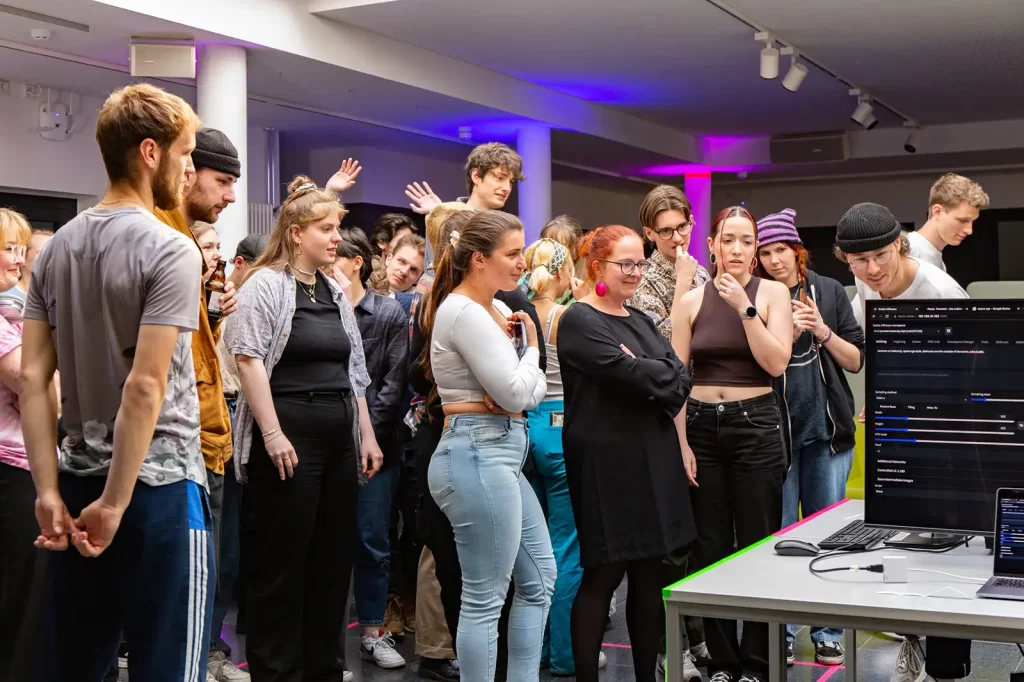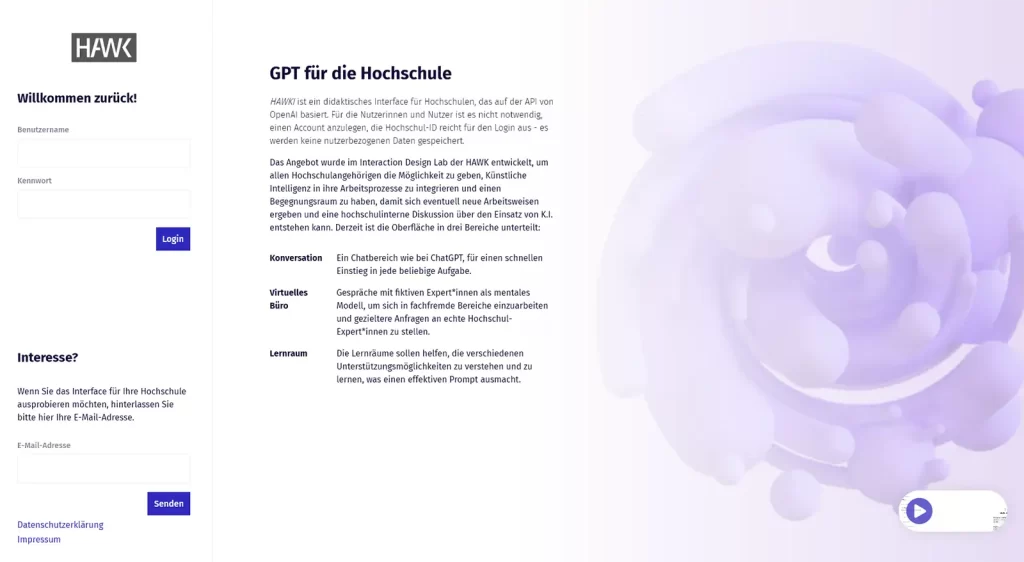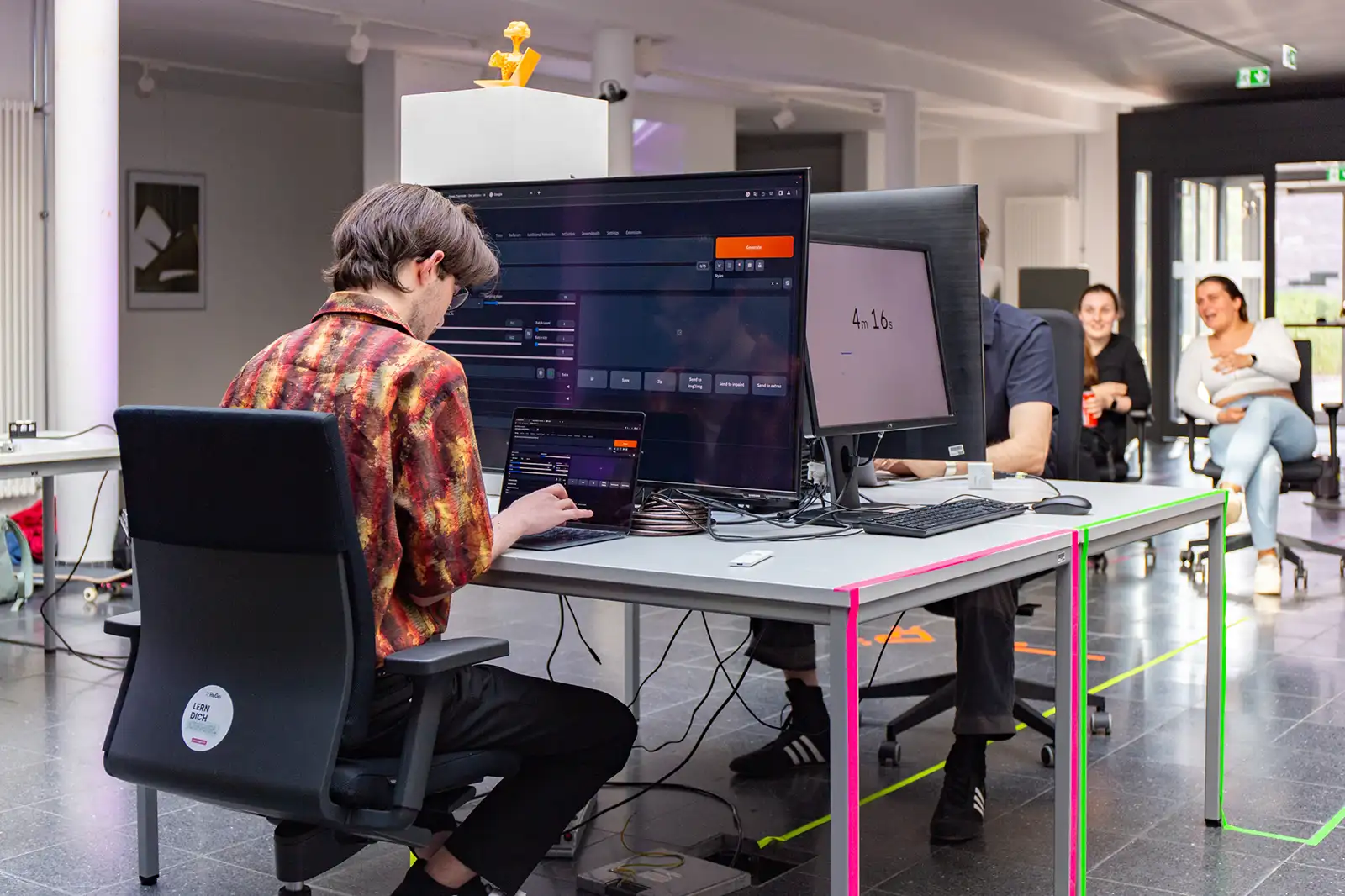With the aim of giving its employees and students room for their own experiments, the Faculty of Design at Hildesheim University of Applied Sciences and Arts (HAWK) has developed an internal portal that, among other things, provides access to the cloud-based text AI ChatGPT. In contrast to other universities, HAWK members do not have to create a personal account with the developer OpenAI; all requests to the AI are completely anonymous and free of charge.

Those responsible at HAWK had discussed both the positive and negative aspects of AI in advance, as students could potentially use it to insert texts into their seminar papers that were not written by themselves. Instead of banning the use of AI in principle, however, the decision was made to take a self-determined approach to the topic. The Vice President for Research and Teaching, Katja Scholz-Bürig, emphasizes that the opportunities offered by the new technology should be recognized and exploited. At the same time, it is important to be aware of the risks and know the limits of AI.

The idea for the AI interface originated in the Interaction Design Lab, headed by Vincent Timm. Together with research assistant Jonas Trippler, he developed the website that university members use to log in. The ChatGPT histories are anonymized and cannot be assigned to a specific user, which guarantees data protection. "We use the platform in our seminars to familiarize students with the topic of AI on the one hand and to prepare and support larger design projects or the next Prompt Battle on the other," says Stefan Wölwer, Professor of Interaction Design in the Digital Environments competence field at the Faculty of Design. The prototype is very popular and several other universities have already expressed an interest in it.
The HAWKI portal offers three main areas: "Conversation" for general tasks, "Virtual Office" for discussions with fictitious experts on specific topics and "Learning Space", which helps to understand the possibilities of AI and learn good prompt suggestions. In order to iteratively improve the service, Wölwer relies on the help of users: "HAWKI is a prototype. Everyone is invited to contribute."


AI now also plays a role in the classroom, with the "KI:OSK" project recently being developed in the Experimental Design course under the direction of Professor Sabine Cole. Students formulated prompts with which the AI calculated various kiosk products and their sellers, and compared their results with reality. This resulted in the real kiosk Snac:ki at the exhibition in August. "AI-generated products are also available here," explains Sabine Cole. "And of course a newspaper, because a kiosk is nothing without a newspaper."

If you would like to find out more about the "KI:OSK", we have already published an article about it here. You can also find out more about the HAWK and its AI Lab here.





